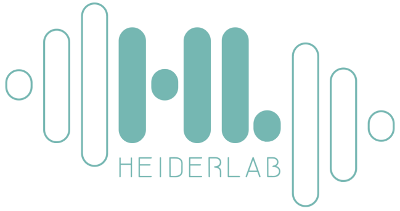CORona Drug InTEractions database
ACE2 Expression in Kidney and Testis May Cause Kidney and Testis Damage After 2019-nCoV Infection
Caibin Fan, Kai Li, Yanhong Ding, Wei Lu Lu, Jianqing Wang
Abstract
In December 2019 and January 2020, novel coronavirus (2019-nCoV) - infected pneumonia (NCIP) occurred in Wuhan, and has already posed a serious threat to public health. ACE2 (Angiotensin Converting Enzyme 2) has been shown to be one of the major receptors that mediate the entry of 2019-nCoV into human cells, which also happens in severe acute respiratory syndrome coronavirus (SARS). Several researches have indicated that some patients have abnormal renal function or even kidney damage in addition to injury in respiratory system, and the related mechanism is unknown. This arouses our interest in whether coronavirus infection will affect the urinary and male reproductive systems. Here in this study, we used the online datasets to analyze ACE2 expression in different human organs. The results indicate that ACE2 highly expresses in renal tubular cells, Leydig cells and cells in seminiferous ducts in testis. Therefore, virus might directly bind to such ACE2 positive cells and damage the kidney and testicular tissue of patients. Our results indicate that renal function evaluation and special care should be performed in 2019-nCoV patients during clinical work, because of the kidney damage caused by virus and antiviral drugs with certain renal toxicity. In addition, due to the potential pathogenicity of the virus to testicular tissues, clinicians should pay attention to the risk of testicular lesions in patients during hospitalization and later clinical follow-up, especially the assessment and appropriate intervention in young patients' fertility.
Source: MedRxiv
Related molecules
| Name | Synonyms | Genes |
|---|---|---|
| Angiotensin-converting enzyme 2 | ACE-related carboxypeptidase, ACE2 | ACE2 |
| Target | Target affiliation | Drug | Type | Result |
|---|---|---|---|---|
| Target | Target affiliation | Drug | Type | Result |
| Name | Synonyms | Genes | Origin |
|---|---|---|---|
| Name | Synonyms | Genes | Origin |
| Name | Synonyms | PubChem | DrugBank | RCSB PDB | ATC |
|---|---|---|---|---|---|
| Name | Synonyms | PubChem | DrugBank | RCSB PDB | ATC |
| Title | Authors | DOI | Source | Article type | Date |
|---|---|---|---|---|---|
| Title | Authors | DOI | Source | Article type | Date |
| Title | Status | Phases | Start Date | Prim. Comp. Date | Comp. Date | First Post. Date |
|---|---|---|---|---|---|---|
| Title | Status | Phases | Start Date | Prim. Comp. Date | Comp. Date | First Post. Date |
CORDITE (CORona Drug InTEractions database) collects and aggregates data from PubMed, MedRxiv, BioRxiv, ChemRxiv and PMC for SARS-CoV-2. Its main focus is set on drug interactions either addressing viral proteins or human proteins that could be used to treat COVID. It collects and provides up-to-date information on computational predictions, in vitro, as well as in vivo study data.
The information provided is for research only and we cannot guarantee the correctness of the data.
Please contact dominik.heider@uni-muenster.de for further information.
Programmable access
There is an open API for access programmatically to the database. The API will print a JSON output:
- Interactions
https://cordite-api.uni-muenster.de/api.php?action=list&table=interaction
- Targets
https://cordite-api.uni-muenster.de/api.php?action=list&table=target
- Drugs
https://cordite-api.uni-muenster.de/api.php?action=list&table=drug
- Publications
https://cordite-api.uni-muenster.de/api.php?action=list&table=publication
- Clinical trials
https://cordite-api.uni-muenster.de/api.php?action=list&table=clinical_trial

